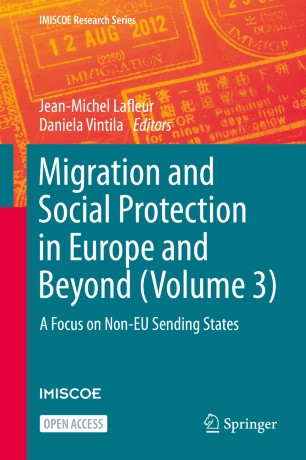

Most ebook files are in PDF format, so you can easily read them using various software such as Foxit Reader or directly on the Google Chrome browser.
Some ebook files are released by publishers in other formats such as .awz, .mobi, .epub, .fb2, etc. You may need to install specific software to read these formats on mobile/PC, such as Calibre.
Please read the tutorial at this link: https://ebookbell.com/faq
We offer FREE conversion to the popular formats you request; however, this may take some time. Therefore, right after payment, please email us, and we will try to provide the service as quickly as possible.
For some exceptional file formats or broken links (if any), please refrain from opening any disputes. Instead, email us first, and we will try to assist within a maximum of 6 hours.
EbookBell Team

4.8
94 reviewsThis third and last open access volume in the series takes the perspective of non-EU countries on immigrant social protection. By focusing on 12 of the largest sending countries to the EU, the book tackles the issue of the multiple areas of sending state intervention towards migrant populations. Two “mirroring” chapters are dedicated to each of the 12 non-EU states analysed (Argentina, China, Ecuador, India, Lebanon, Morocco, Russia, Senegal, Serbia, Switzerland, Tunisia, Turkey). One chapter focuses on access to social benefits across five core policy areas (health care, unemployment, old-age pensions, family benefits, guaranteed minimum resources) by discussing the social protection policies that non-EU countries offer to national residents, non-national residents, and non-resident nationals. The second chapter examines the role of key actors (consulates, diaspora institutions and home country ministries and agencies) through which non-EU sending countries respond to the needs of nationals abroad. The volume additionally includes two chapters focusing on the peculiar case of the United Kingdom after the Brexit referendum. Overall, this volume contributes to ongoing debates on migration and the welfare state in Europe by showing how non-EU sending states continue to play a role in third country nationals’ ability to deal with social risks. As such this book is a valuable read to researchers, policy makers, government employees and NGO’s.